LUXEMBOURG – 14 December 2015 – Today in Luxembourg, Europe celebrated top girls and women in technology as part of the Luxembourg presidency of the Council of the European Union. The 2015 European Ada Awards, an initiative of the Brussels-based Digital Leadership Institute (DLI), were presented in the categories of Digital Woman, Digital Impact Organisation, and Digital Girl of the Year. Two teens from Ireland and the UK were recognised in the category of Digital Girl of the Year.
 Europe’s Best Young Coders
Europe’s Best Young Coders
“I’m really excited,” beamed Niamh Scanlon, thirteen-year-old Digital Girl Award-winner from Ireland who has been coding since she was nine. According to Scanlon, after-school classes at CoderDojo were critical for her to hone and share her award-winning app-building skills. “Classes especially for girls are really important to get them coding,” Scanlon adds. In a field susceptible to discouraging stereotypes, “girls shouldn’t feel like coding is just for boys,” she says.
“I go to an all-girl school and still uptake in computing wasn’t as high as other subjects,” says Yasmin Bey, fourteen-year-old Digital Girl Award-winner from the UK who knows five coding languages and professes a love for tiny Raspberry Pi computers. “I started coding clubs to inspire girls and show them how awesome programming is,” she says. Bey now teaches classes with hundreds of students and is keen to share her knowledge. “Everyone should learn to code,” she says.

Needed: More Female Tech Role Models
Janneke Niessen, COO and Cofounder of Improve Digital, received the 2015 European Digital Woman of the Year Award and acknowledges that being one of a small group of woman tech founders in Europe “has its own challenges.” Since as few as three percent of European founders in digital fields are women, more action to increase their visibility is needed, according to Niessen. Niessen herself has launched two initiatives: InspiringFifty, promoting women tech role models, and a book for young girls called Project Prep. “Girls don’t know what they’re missing when they say ‘no’ to a career in technology,” Niessen says, “so it’s important for us to show them.”
Longterm Vision and Commitment
Cocky Booij, Director of VHTO in the Netherlands, accepted the 2015 European Digital Impact Organisation Award for her organisation’s pioneering work to increase participation of girls in digital sectors. “Given the dominance of digital technology in our lives and the chronic underrepresentation of girls as digital makers,” Booij says, “VHTO promotes an integrated approach with a longterm vision to engage girls and keep them in these fields.”

Driving Step-Change
“The goal of the Ada Awards is to drive a step-change in attitudes about girls and women as digital leaders,” says Cheryl Miller, DLI founder, who admits frustration about the pace of change. Unfilled tech jobs in Europe will reach one million by 2020, so skilling girls and women now to take up these jobs is a ‘no-brainer,’ she says. “Targeted action to engage girls and women in digital leadership is not a luxury,” Miller continues, “but an economic necessity demanding urgent action by Europe’s leaders.”
Transition to the Digital Future
Support for the Ada Awards is led by top digital skills organisations in Europe, including CEPIS, DIGITALEUROPE, the European Schoolnet and ECWT, and technology companies like Amazon Web Services who are driving the transition to a digital future.
###
1. Digital Girls of the Year:
- Niamh Scanlon, 13-years old from Ireland
- Yasmin Bey, 14-years-old from the United Kingdom
2. Digital Woman of the Year: Janneke Niessen, COO & Cofounder Improve Digital
3. Digital Impact Organisation of the Year: VHTO, the Netherlands


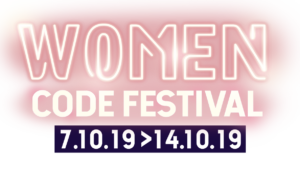

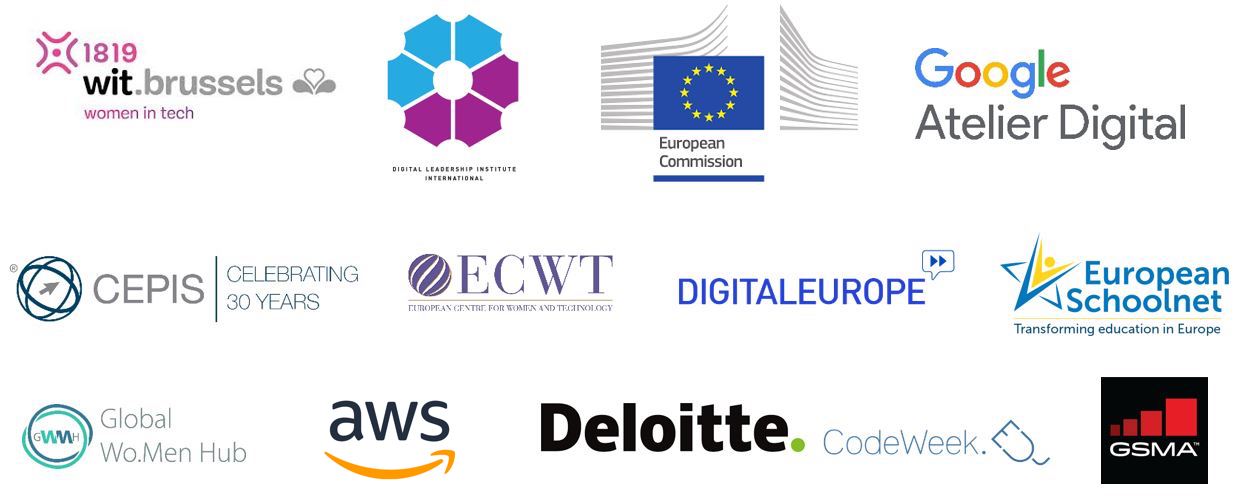





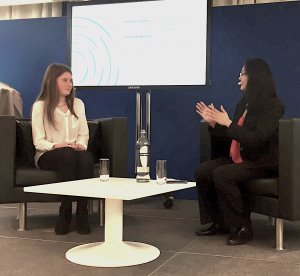
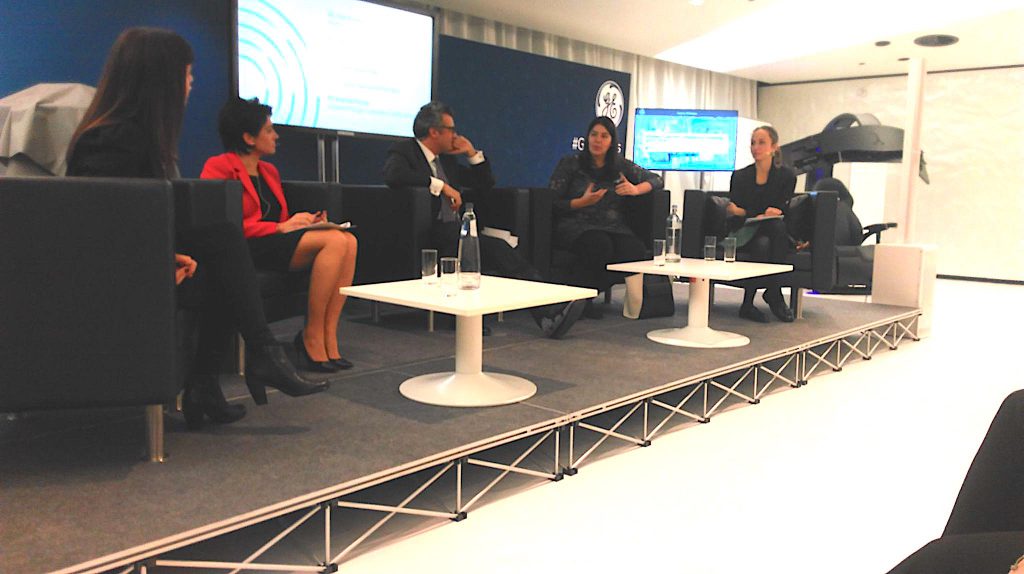
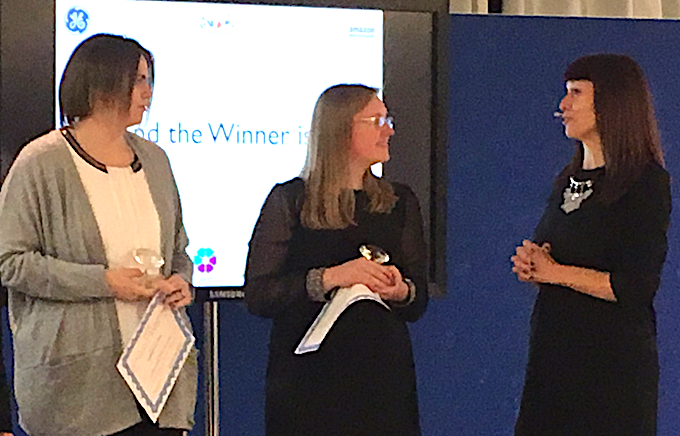






 Carrie Anne is leading change in the way computing is taught at schools across the UK through her work with the department for Education, the Raspberry Pi Foundation and computing at school. She is engaged in projects to inspire girls and other minority groups into computing and tackling teaching resources that currently disenfranchise young girls and women. For the second year in a row, Carrie Anne’s initiative Geek Gurl Diaries has been nominated for a digital heroes award. She is also writing a fun tech book for teenagers about Raspberry Pi to engage all regardless of gender.
Carrie Anne is leading change in the way computing is taught at schools across the UK through her work with the department for Education, the Raspberry Pi Foundation and computing at school. She is engaged in projects to inspire girls and other minority groups into computing and tackling teaching resources that currently disenfranchise young girls and women. For the second year in a row, Carrie Anne’s initiative Geek Gurl Diaries has been nominated for a digital heroes award. She is also writing a fun tech book for teenagers about Raspberry Pi to engage all regardless of gender.
 14-year-old Amy has been coding for three years and has inspired people of all ages with her keynote speeches at the Raspberry Jamboree, Campus Party EU and Wired: Next Generation. She teaches older pupils how to code during her school lunch breaks and with the Manchester Girl Geeks.
14-year-old Amy has been coding for three years and has inspired people of all ages with her keynote speeches at the Raspberry Jamboree, Campus Party EU and Wired: Next Generation. She teaches older pupils how to code during her school lunch breaks and with the Manchester Girl Geeks. Lune develops her own games and interactive movies with
Lune develops her own games and interactive movies with  At 13, Olina Helga has taught both children and teachers the basics of programming. She has blogged for Little Miss Geek in the UK, been nominated to speak at TED and showcased as a keynote speaker at Iceland’s largest IT conferences. She especially enjoys seminars for girls that combine the basics in programming and building up self-confidence.
At 13, Olina Helga has taught both children and teachers the basics of programming. She has blogged for Little Miss Geek in the UK, been nominated to speak at TED and showcased as a keynote speaker at Iceland’s largest IT conferences. She especially enjoys seminars for girls that combine the basics in programming and building up self-confidence.


